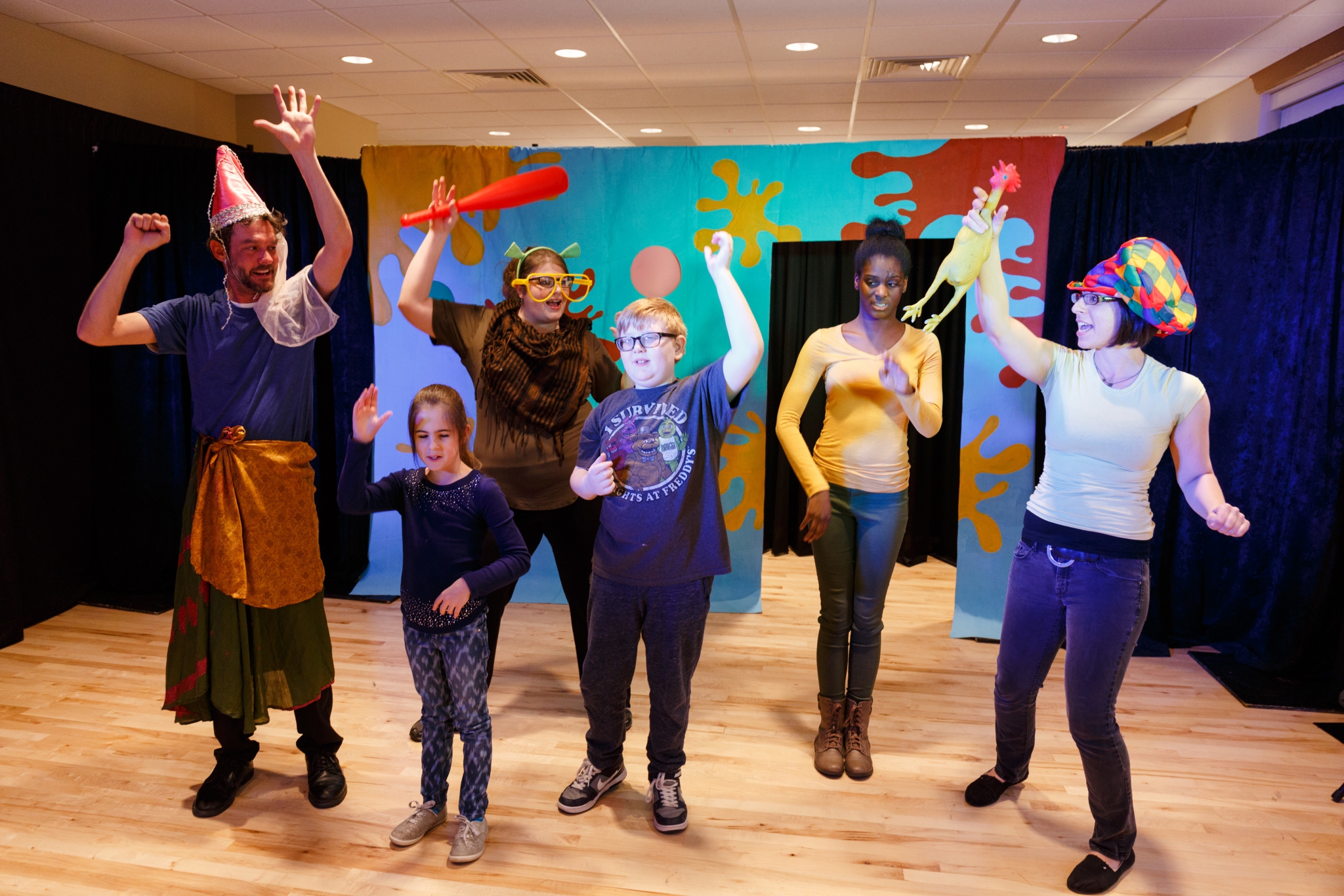Grants
Virginia Stage Company Expansion Makes Theater More Accessible
 |
| Kamryn Tynes (in yellow) dances with actors and students after a Wells Theater Show. |
Recently Kamryn was among nearly a dozen blind and visually impaired students gathered in the Virginia Stage Company’s new Education Room at the Wells Theater in Norfolk.
They spent a Saturday afternoon enjoying a Dramatically Able performance sponsored by the Virginia Stage Company and Access Virginia, a nonprofit advocating for people with disabilities.
The show, an improv comedy performance loosely scripted around the story of Robin Hood, drew laughter and shouts of “huzzah for the Merry Men.” It also represented a new chapter in the Virginia Stage Company’s effort to make its 116-year-old theater more accessible to people with disabilities.
A nine-month renovation, funded in part by more than $479,000 in Hampton Roads Community Foundation grants, improved many facets of the building. Two additional performance spaces made room for new programs like the one Kamryn attended. A wheelchair lift helps visitors with mobility issues easily reach the second-floor education room. A listening system improves the theater experience for audience members with hearing impairments.
Improved lobby lighting helps everyone. Bigger restrooms allow more space for wheelchairs, and women are happy their bathroom gained three extra stalls. In addition, the theater now has a gender-neutral bathroom compliant with the Americans With Disabilities Act.
 |
| Programs like this introduce children with disabilities to the world of the arts. They give them the chance to learn and project who they are, without limitations. |
“Today, we can Hampton Roads Community Foundation more intimate events and bring more students on-site for programming,” says Tom Quaintance, Virginia Stage Company artistic director. “Before, those spaces were basically unusable.”
The 1,300-square-foot upstairs education room was perfect for the Dramatically Able series. It incorporated a hands-on, touch-and-feel prop station before the performance and a question-and-answer session between the students and the actors. That tactile component is important for students with visual impairments, says Gail Henrich, a Norfolk Public Schools teacher and volunteer audio describer with Access Virginia.
“Our kids learn best by doing,” she explains. “They don’t always understand things that depend on visual cues, as so much of the theater does. We can use these opportunities to teach them and give them new experiences.”
Lelia Tynes, Kamryn’s grandmother, likes that “programs like this introduce Kamryn to the world of the arts. They give her the chance to learn and project who she is, without limitations.”
The late Robert Brown, founding president of the Virginia Stage Company’s board of trustees, applauded the latest renovation that continues the theater’s long history in Norfolk. Brown passed away in May 2017 shortly after being interviewed. He played a leadership role in the theater’s initial renovation in the 1970s and a second renovation in the 1980s.
“I’m very happy with the new changes,” he said of the latest improvements. “We’ve always wanted the Wells to be welcoming and accessible for people with disabilities.”


